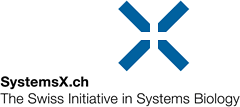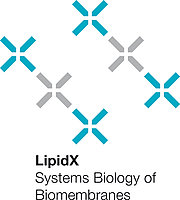LipidX
Systems Biology of Biomembranes
Eukaryotic cells contain hundreds to thousands of different lipid species. The necessity and the roles of this diversity and distribution are largely unclear. Their importance is however evident by the fact that alterations in the lipid composition of membrane domains or intracellular compartments lead to disease.
The diversity of lipids is generated through the combinatorial assembly of acyl chains of different lengths and saturation and head groups of different composition. The relative concentration of different lipids within a cell is tightly controlled. Moreover, each lipid has a well-defined subcellular distribution within the cell, i.e. each intracellular membrane-bound organelle has a well-defined lipid composition. Even within the two-dimensional space of a given membrane, the lipid distribution is not homogeneous. The necessity and the roles of this diversity and distribution are largely unclear.
Lipid component of diseases
Alterations in the lipid composition of membrane domains or intracellular compartments lead to disease. Many diseases indeed have a strong lipid component: alterations in lipid metabolism may lead to obesity or metabolic syndrome; impaired degradation of lipids in the endocytic pathway leads to lysosomal storage diseases; accumulation of cholesterol is involved in atherosclerosis. But also diseases such as Alzheimer, Huntington and cancer have been found to be associated with perturbed lipid distributions. Thus, a better understanding of lipid homeostasis is essential for both basic biology and medicine.
Fundamentals of lipid biology
In LipidX, we use lipidomics, high-throughput screening and iterative cycles of mathematical modeling and experimental testing, and we analyze the intricate links and interplay between signaling, lipid composition, and cell physiology. The outcome of our work will generate knowledge about the fundamentals of lipid biology and biomembranes, and it will advance the development of novel disease therapies.
| Principal Investigator | Prof. Gisou van der Goot, Global Health Institute, EPF Lausanne |
| Involved Institutions | EPF Lausanne, University of Geneva, University of Zurich, ETH Zurich, University of Lausanne |
| Number of Research Groups | 5 |
| Project Duration | Jan. 2013 – Dec. 2016 |
| Approved SystemsX.ch Funds | CHF 3 million |
Updated June 2013


